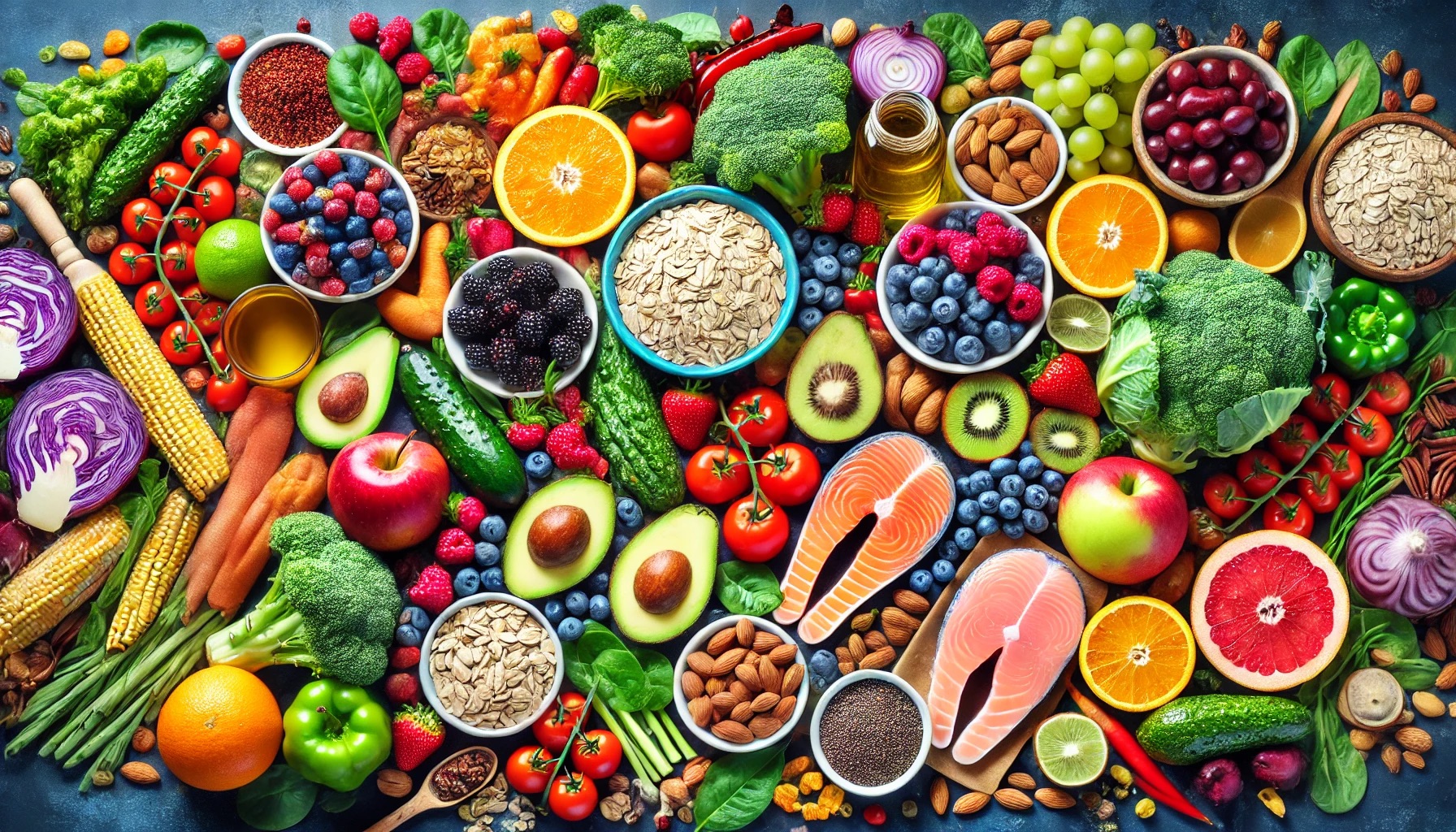Cardiovascular health is a cornerstone of overall well-being, crucial to our longevity and quality of life. Diet, being a significant modifiable factor, can profoundly influence heart health. Understanding what to eat for a healthy heart can empower you to make informed dietary choices that support cardiovascular function and reduce the risk of heart disease. Here’s a comprehensive guide on the impact of diet on cardiovascular health and the best foods to include in your daily regimen.
Understanding Cardiovascular Health
The cardiovascular system comprises the heart and blood vessels, circulating blood throughout the body. Heart disease, which includes conditions such as coronary artery disease, hypertension, and stroke, is often linked to factors like high cholesterol, high blood pressure, and inflammation. Diet can directly impact these factors, making it a powerful tool in maintaining cardiovascular health.
The Role of Diet in Cardiovascular Health
1. Cholesterol Levels
Diet significantly influences cholesterol levels in the blood. LDL cholesterol (often called “bad” cholesterol) can lead to plaque buildup in arteries, increasing the risk of heart disease. Conversely, HDL cholesterol (“good” cholesterol) helps remove LDL cholesterol from the bloodstream. Foods high in saturated and trans fats can raise LDL cholesterol, while foods rich in unsaturated fats can help increase HDL cholesterol.
2. Blood Pressure
High blood pressure, or hypertension, is a significant risk factor for heart disease. A diet high in sodium can contribute to elevated blood pressure. Conversely, potassium-rich foods can help counteract the effects of sodium and help maintain healthy blood pressure levels.
3. Inflammation
Chronic inflammation is a contributing factor to many cardiovascular diseases. Certain foods, particularly those high in antioxidants and omega-3 fatty acids, can help reduce inflammation.
4. Weight Management
Maintaining a healthy weight is essential for cardiovascular health. A balanced diet that provides appropriate caloric intake and nutrients supports weight management and reduces the strain on the heart.
Heart-Healthy Foods to Include in Your Diet
1. Fruits and Vegetables
Fruits and vegetables are rich in vitamins, minerals, antioxidants, and dietary fiber. They help lower blood pressure, reduce inflammation, and improve heart health. Aim to include a variety of colorful fruits and vegetables in your diet, such as berries, oranges, leafy greens, and cruciferous vegetables like broccoli and Brussels sprouts.
2. Whole Grains
Whole grains such as oats, brown rice, quinoa, and whole wheat are excellent sources of fiber, which can help lower cholesterol levels and maintain healthy blood pressure. Choose whole grains over refined grains to maximize the cardiovascular benefits.
3. Lean Proteins
Incorporate lean proteins like fish, poultry, beans, and legumes into your diet. Fatty fish, such as salmon, mackerel, and sardines, are particularly beneficial due to their high omega-3 fatty acid content, which helps reduce inflammation and lower the risk of heart disease.
4. Nuts and Seeds
Nuts and seeds are rich in healthy fats, fiber, and protein. They can help lower LDL cholesterol and provide essential nutrients for heart health. Almonds, walnuts, chia seeds, and flaxseeds are particularly beneficial.
5. Healthy Fats
Choose sources of healthy fats such as avocados, olive oil, and fatty fish. These fats can help improve cholesterol levels and provide anti-inflammatory benefits. Avoid trans fats and limit saturated fats found in processed and fried foods.
6. Low-Fat Dairy
Incorporate low-fat or fat-free dairy products like yogurt, milk, and cheese into your diet. These provide essential nutrients without the added saturated fats that can negatively impact heart health.
7. Legumes
Beans, lentils, and chickpeas are excellent plant-based protein sources rich in fiber and other heart-healthy nutrients. They help improve cholesterol levels and provide a satisfying, nutrient-dense alternative to animal proteins.
Foods to Limit or Avoid
1. Processed Foods
Processed foods often contain unhealthy fats, sodium, and added sugars. Limiting these can help reduce the risk of heart disease.
2. Sugary Beverages
Sugary drinks like sodas and sweetened juices contribute to weight gain and increased risk of heart disease. Opt for water, herbal teas, or unsweetened beverages instead.
3. Red and Processed Meats
High consumption of red and processed meats has been linked to increased heart disease risk. Choose leaner protein sources and limit these meats in your diet.
Your diet plays a crucial role in maintaining cardiovascular health. By incorporating heart-healthy foods and limiting those that can negatively impact your heart, you can significantly reduce your risk of heart disease and enhance your overall well-being. Embrace a balanced, nutrient-rich diet, and take proactive steps towards a healthier heart and life.
Dr. Barbara R. Edwards is a practicing internist at Penn Medicine Princeton Health, also serving as the Academic Director for the Ambulatory Residency Program at the same institution.


